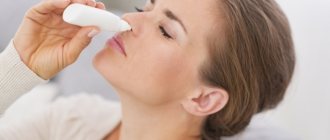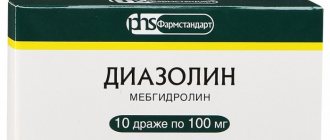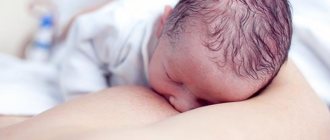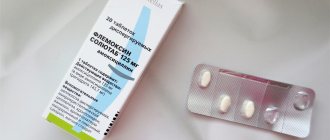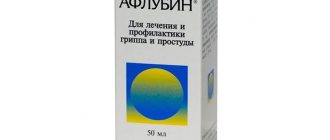A runny nose occurs for various reasons. As a rule, this is a symptom of a cold or acute respiratory viral infection. However, the disease can appear due to allergies, infections, nasal trauma and dry indoor air. It is important to correctly recognize the cause and, if necessary, begin treatment.
To minimize the consequences and risk of infection for your baby, it is better to consult a doctor. He will prescribe the correct treatment and select medications. This will allow you to quickly get rid of the disease.
Runny nose and breastfeeding
A runny nose while breastfeeding is normal, and there is no need to stop breastfeeding at this time! But if a nursing mother has a cold or bacterial infection, there is a risk of infecting the baby. To avoid trouble, you must take the following precautions:
- Wear a mask during feeding and prolonged contact with the baby;
- Maintain a normal level of air humidity in the room, which is 65-75%;
- Ventilate the room regularly;
- Maintain the room temperature at about 20-24 degrees above zero;
- Change your clothes regularly.
It is necessary to stop breastfeeding only when a nursing mother needs to take antibiotics that are prohibited during lactation. Only a doctor can prescribe such drugs! Treatment with spray and drops is carried out immediately after breastfeeding. This will reduce the risk of drug contents passing into breast milk to a minimum.
Folk remedies for runny nose
Please note that home methods only clear the nasal passages and temporarily relieve congestion, but do not eliminate the cause of the runny nose. The most common methods of folk treatment include instillation of chamomile and aloe juice into the nose, as well as rinsing with water and salt.
Rinse the nose with salt water 4-6 times a day using a syringe or a small kettle. To prepare the solution, mix one teaspoon of salt with a liter of water. A nursing mother should use the syringe very carefully and not exceed the permissible volume of salt water, otherwise it will pass into breast milk.
Aloe juice is squeezed from one of the lower leaves of the plant and diluted with water in a ratio of 1 to 5 (one part of juice is five parts of water). The product is instilled into the nose, 3-4 drops two to three times a day. The juice of these plants moisturizes the nasal passages and relieves swelling. But keep in mind that the solution only has a beneficial effect within 24 hours of receipt.
Chamomile infusion is prepared from one teaspoon of dried flowers, which is poured with a glass of boiling water and left under the lid for one hour. You need to instill 3-4 drops three to four times a day. By the way, in addition to chamomile, you can use coltsfoot, thyme and string.
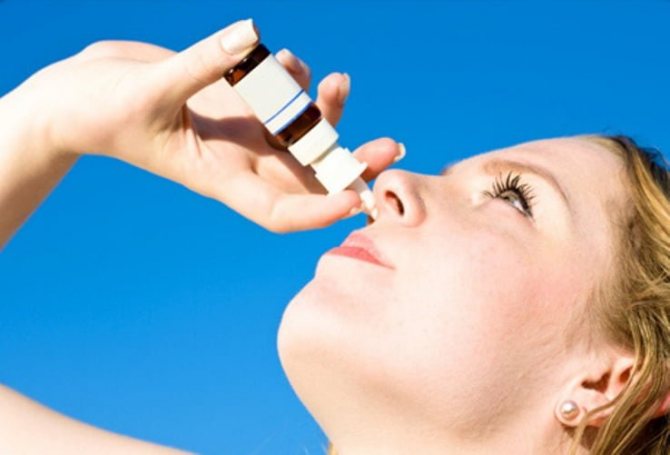
Folk remedies
A nursing mother’s runny nose can also be cured using traditional medicine, which has a good therapeutic effect and does not cause any harm to the baby. As medicinal raw materials, you can use medicinal herbs, essential oils, and some improvised means.
Recipe No. 1. Kalanchoe juice for a runny nose. At the first symptoms of rhinitis, you can drip Kalanchoe juice into your nose. To prepare the medicine, just take a leaf of the plant, chop it, squeeze out the juice, dilute it in a ratio of 1:5 with water and drop 2 - 3 drops into the nose three times a day.
Recipe No. 2. Chamomile infusion. You will need 1 tablespoon of chamomile flowers, pour a glass of boiling water, leave for 30 minutes, strain. You can put 2 drops into your nose 3 – 5 times a day. Chamomile is completely safe during breastfeeding and has a pronounced antibacterial effect.
Recipe No. 3. Onion drops in the nose. A proven way to treat rhinitis is onion juice. You will need 1 onion, which you need to chop, squeeze out the juice and leave in the refrigerator for 3 hours. After time, the juice should be diluted with water 1:3, 3 drops should be instilled into the nose, 3 times a day.

These are not all recipes for nursing mothers for a runny nose, but in any case, before using them, you need to rule out an allergic reaction to the components and consult a doctor. With hepatitis B, it is important to know what to do and how to treat a runny nose, but before taking any treatment measures, you need to determine its nature and assess the general condition of the woman and baby. When the runny nose is advanced, folk remedies may be useless or only temporarily improve the well-being of the nurse.
Drug treatment for runny nose
Before treating a runny nose with pharmaceuticals, carefully study the instructions and composition of the drug, find out about the consequences and side effects, the effect on lactation and the effect during breastfeeding. Consult your physician before use. There are various sprays and nasal drops:
- based on sea water;
- with essential oils;
- constricting blood vessels.
Vasoconstrictor drops are among the most popular due to their low cost. However, when breastfeeding, such drugs should be used with caution, as they can be addictive if used frequently or for a long time. And some drugs, like Navizin and Tizin, are contraindicated during lactation.
Plant-based drops with essential oils are thick and are great for eliminating a runny nose. However, some components can cause an allergic reaction in a nursing mother and baby.
Seawater drops are safe for breastfeeding. They rinse well and free the nose from mucus, wash the mucous membrane and resist viral infection.
If a runny nose is treated intensively and correctly, it goes away in 4-6 days. If the illness bothers you longer, consult a doctor!
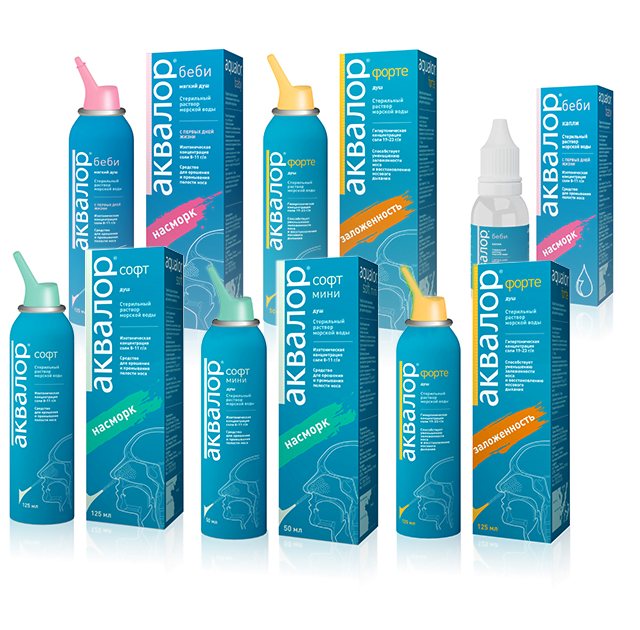
Principles of treatment of runny nose during lactation
Many women think about how to treat a runny nose during lactation.
This is quite difficult, since you need to select drugs that would not affect the baby through breast milk. Therapy must be comprehensive. The main measures are as follows:
- Bed rest. You must constantly remain in a lying position. This will prevent the infection from spreading to other organs and systems. The body will spend more energy on defense. If mommy is constantly in bed, this will shorten the time of illness. You must stay in bed for at least 3 days. This will prevent complications from occurring.
- Drinking plenty of water. Not only regular, but also mineral, non-carbonated warm drinks are allowed. Fruit drinks, juice, compote are very useful. A large amount of fluid consumed will accelerate the elimination of toxins - substances that are produced when viruses are active. Many people are interested in what to do before seeing a doctor. It is best to drink more fluids, this will improve the patient’s condition.
- Fresh air. The room needs to be ventilated frequently. This will prevent the baby from becoming infected. It is imperative to pay attention to air humidity so that the mucous membranes do not dry out. If its indicator is less than 60%, then mucus production will begin to noticeably decrease. This will make it more difficult for the body to fight infection. When the heating season begins, you need to humidify the air in the room. This can be done using a special device. It is acceptable to simply place a wet towel on the batteries. The room temperature should be no more than 22 °C.
- Elimination of hyperthermia. Treatment of a runny nose in a nursing mother rarely occurs without taking medications with antipyretic properties. But a woman during lactation should not abuse such medications. If the body is normally able to tolerate a temperature of 38 ° C, then it is better not to knock it down, since this is also a protective mechanism due to which the virus dies. If you use antipyretic drugs for an illness without reason, this will only delay recovery. These medications should be taken if the temperature rises above 38 °C. It is best to use products that contain ibuprofen and paracetamol. Such drugs additionally have analgesic properties, so the headache will quickly go away.
Which drops to choose
| Means | Description | Compatibility with lactation | Price |
| Nazol | Combined vasoconstrictor spray, relieves swelling in 10-15 minutes | Safe when used in minimal dosage, however, according to the instructions, it is contraindicated during lactation | 150 rubles (10 ml) |
| Pinosol | Plant-based nasal drops contain extracts of pine, eucalyptus and mint, cleanse the mucous membrane, relieve inflammation and swelling | Can be taken while breastfeeding, but components in the composition sometimes cause allergies | 140 rubles (10 ml) |
| Allegrodil | Antihistamine spray relieves nasal congestion, helps with allergic rhinitis | Compatible with breastfeeding, low risk of side effects | 650 rubles (10 ml) |
| Nazarel | New generation spray with anti-inflammatory and anti-edema effects | Compatible with breastfeeding | 377 rubles (120 doses of 50 mcg each) |
| Aqua Maris | A spray based on sea water of natural origin clears the nasal passages, helps with colds and allergies | Not contraindicated during breastfeeding | 150 rubles (10 ml) |
| Nazaval | The spray relieves itching in the nose, swelling of the mucous membrane and stops the development of allergy symptoms | Compatible with breastfeeding | 440 rubles (500 mg) |
Drug therapy during breastfeeding
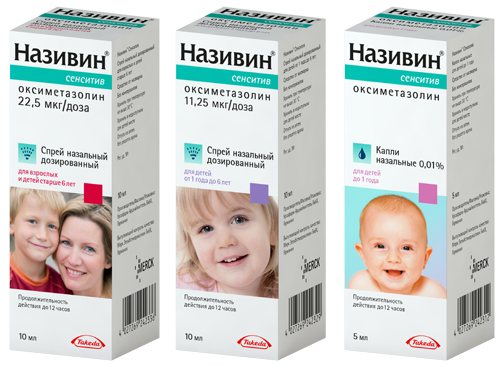
How to treat a runny nose for a nursing mother? Most often, for colds and allergic reactions, they resort to the use of medications. A runny nose in a nursing mother can be treated with.
- Vasoconstrictor drops.
They are used for nasal congestion. The action of such drugs is aimed at narrowing blood vessels and removing swelling from the mucous membrane. The duration of use should not exceed more than five days, otherwise the woman is at risk of developing drug-induced rhinitis. It is best for a nursing mother to use drops that are intended for small children for a runny nose. These include Nazivin, DlyaNos, Snoop. - Drops based on essential oils. Such drugs have an anti-inflammatory effect. Occasionally cause allergic reactions and have virtually no contraindications. Their action is aimed at softening the mucous membrane and relieving tissue swelling. These drugs include Pinosol. It is available in the form of drops, spray and ointment.
- Drops based on sea water. This group of products is safe and can therefore be used for a long time. These products include AquaMaris, AquaLor, Marimer.
If a nursing mother’s runny nose is caused by an allergic reaction, then the approach to treatment changes slightly. In this case, vasoconstrictors cannot be used, since the mucous membrane will begin to swell even more and will quickly become addictive to the body.
If you have an allergy, it is important to eliminate the irritant. If it manifests itself in house dust, then it is enough to get rid of soft toys, carpets and upholstered furniture. Everything should be from natural materials. You should also carry out wet cleaning daily.
As a therapeutic process, a nursing mother should:
- Use drops to relieve tissue swelling and nasal congestion using Vibrocil.
- Resort to the use of antihistamines. It is better to use them in drops, as they are approved for use in children. Such drugs include Zodac, Zyrtec and Fenistil. There is also a more modern drug that does not cause side effects. This includes Erius. It is effective, but quite expensive. Antihistamines should be taken for five to seven days.
- Use topical glucocorticosteroids. They allow you to quickly relieve swelling and congestion of the nasal passages. They only need to be used once a day. This group of drugs is considered safer than vasoconstrictors. CCs also practically do not penetrate into the general bloodstream.
In any case, treatment of a runny nose of an infectious or allergic nature requires consultation with your doctor.
If a runny nose during lactation occurs due to dry air, then it is worth purchasing an air humidifier. If this is not possible, then you need to hang the batteries with wet towels or diapers. When they dry out, replace them with new ones.
Treatment of allergic rhinitis
If the cause of a runny nose is an allergy, you need to determine the cause of this reaction and eliminate the allergen. If you have allergies, you should not take medications or inhale herbal decoctions and essential oils. Such components can only enhance the reaction.
To treat allergic rhinitis, you must consult a doctor. Many anti-allergenic drugs are contraindicated for a nursing mother. Taking such well-known drugs as Tavegil and Suprastin is harmful to lactation and the infant.
Your doctor may recommend taking Nazaval or Nasonex drops. However, such drugs act temporarily and localize symptoms, but do not cure a runny nose. What should a nursing mother do if she has allergies? Read the link /.
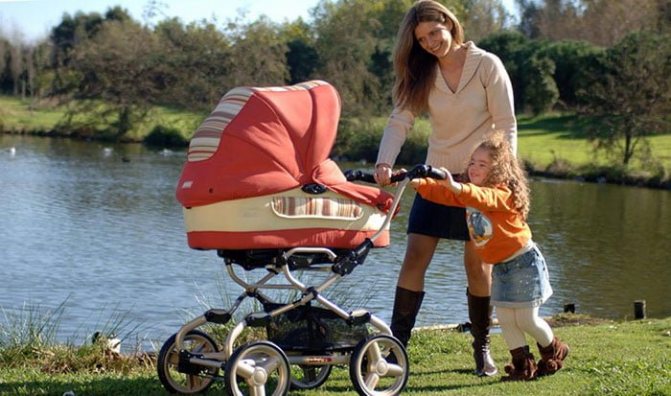
Prevention of a runny nose
Prevention is always better than cure. Follow the recommendations and you will avoid a runny nose while breastfeeding:
- Don't get too cold;
- During outbreaks of infections, avoid public places, wear a protective mask;
- Avoid contact with common allergens (dust, wool, flowers, etc.);
- Maintain a comfortable temperature and humidity in the room;
- Ventilate the premises regularly, but avoid drafts.
If a runny nose is a symptom of a cold, comprehensive treatment should be used.
Do not rush to take antiviral drugs, try folk remedies first. However, do not forget here that some components of the decoctions cause allergies in infants. To find out what will help a nursing mother with viral diseases, read the article “How and with what to treat a cold while breastfeeding.” Subscribe to our VKontakte group
